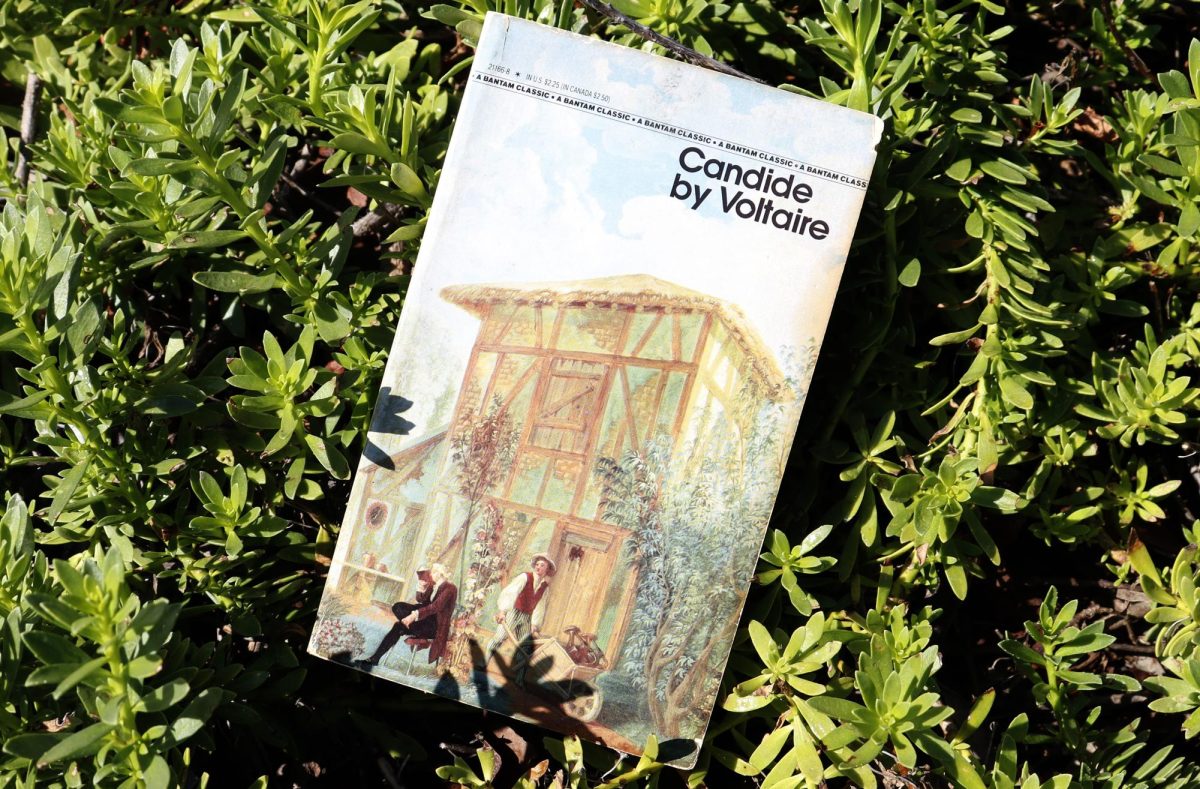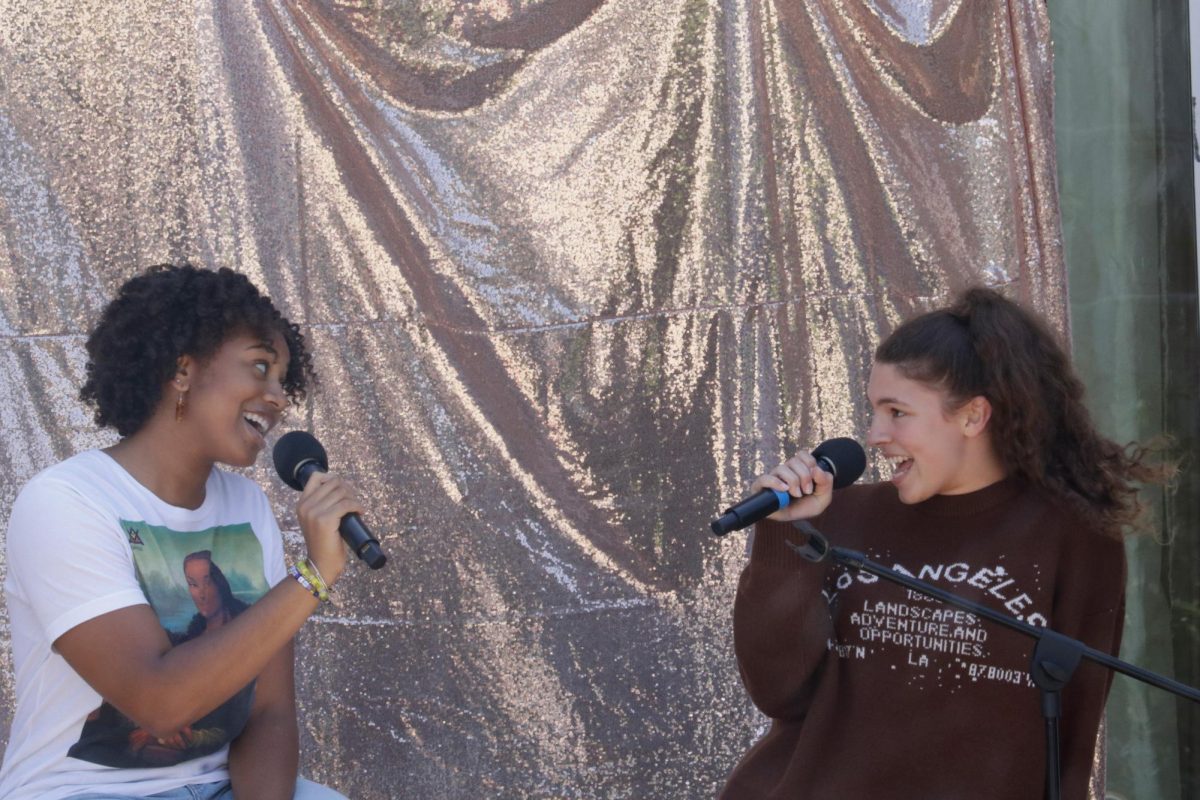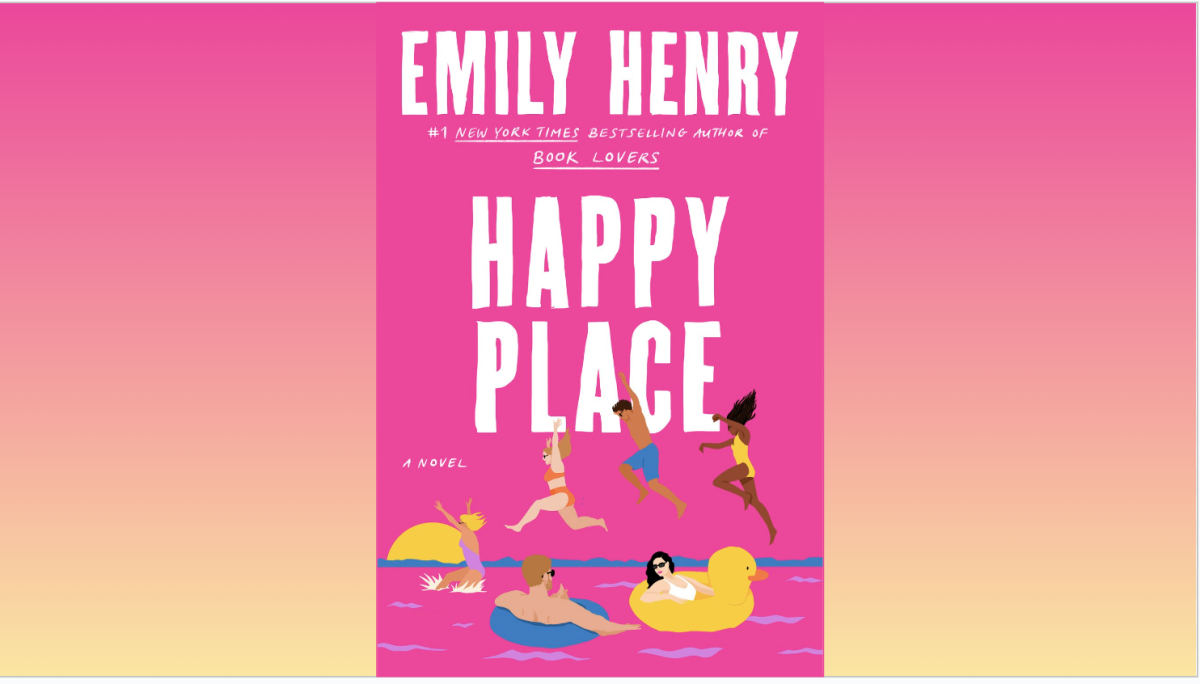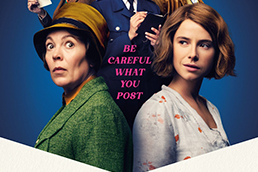“Everything that happens is for the best,” my friend assures me just before the ship we are sailing on explodes and kills everyone on board except the two of us.
Such goes the life of Candide, the main character in the 1759 novel “Candide” by François-Marie Arouet, better known as Voltaire. The story follows Candide, accompanied by the woman he loves, Cunegonde, through many trials and tribulations. Both considered by many to be one of the greatest works of all time and banned frequently over its long lifetime, “Candide” is at once a thrilling satire and historical record of life in 18th century Europe.
“Candide” has been received in vastly different ways throughout its lifetime. It was called “a matchless satirical take-down of religion, theologians, governments, armies, philosophies and philosophers” by Warbler Press and “Not bad, just like weird,” by Goodreads reviewer Alex Moskus. How might teenagers today receive it?
When I started reading “Candide” in the middle of summer, bored out of my mind, I was delighted by it. It felt — for lack of a better word — modern. The first chapter is filled with shenanigans and human stupidity, neither of which I expected to find in a book nearly 300 years old. In my initial, naive excitement, it was hard to find fault with “Candide.”
The general plot is that our hero, Candide, has been raised to believe he is living in the best of all possible worlds. His philosophy teacher tells him every bad thing that happens is meant to happen and is actually a good thing. And boy, do the bad things keep happening.
Candide travels across the globe, and the more people he encounters, the more he begins to doubt the theory that all is for the best. Through Candide’s experiences, Voltaire calls out the hypocrisy in treating people differently based on race and religion. He forces the audience to reckon with the injustices in the world, indirectly telling readers to stop romanticizing a world that creates such horrible conditions.
Voltaire hides nothing from the audience and writes openly about sex, violence, religion and many other fun, lighthearted topics. “Candide” was uncomfortable to read at times, as Voltaire spares no gory details, but the unflinching transparency written into each page kept me invested in Candide’s journey. It helped me remember that people have always been people, no matter how long ago they were alive. “Candide” didn’t always feel pleasant, but it always felt real.
Voltaire remains honest throughout the entire text: He never implies that the novel is going to instill the reader with hope, and it never does. “Candide” is a phenomenal historical record and one-of-a-kind satire.
It is also terribly sad.
I started reading Candide because I thought it would be educational — and it was. I can’t say it was enjoyable, though. All is not for the best, Voltaire urges the reader to believe, and this is only once followed up by any message of: “Do your part to make it better.”
If I attempt to distance myself from how the book made me feel — treating it only as a historical document — I find it incredibly interesting and filled to the brim with valuable information. When I pause to consider how I actually felt about “Candide,” though, I found no joy in reading it.
“Candide” echoed back to me the nihilistic messages I am already bombarded with by the news, social media, my friends and even myself as a teenager in 2024. It is easy to let myself be overwhelmed by the knowledge that so much of our world is suffering. Often, the only thing that stops me from spiraling is the thought that I can do my part to make the world slightly better. I can, little by little, change things. We all can.
There are many reasons I can see for someone to read “Candide”: historical awareness, a fresh perspective on life in 18th century Europe or a study in different writing styles. Pleasure and happiness are not included in that list of reasons. To any fellow teens out there who may be considering “Candide” as a book to pick up, perhaps out of a love of classics or an interest in satire, allow me to gently recommend saving this book for later. There will always be something telling you things are hopeless. I urge us all to instead cultivate our garden with things that will bring us joy.
-
Writing
-
Story
-
Characters
-
Enjoyment
-
Purpose
Summary
“Candide” is a satirical work of fiction written in the late 18th century. Intended as a critique of the philosophy of optimism and to comment on the hypocrisy of the Catholic Church, “Candide” has been both frequently criticized and praised throughout its lifetime. The book follows Candide, a young man, as he struggles through life and contemplates whether all is truly for the best.




























Melinda Wang • Mar 5, 2024 at 9:40 pm
BEAUTIFULLY written viv!! i loved reading this so so so much, and your writing is so powerful <33333